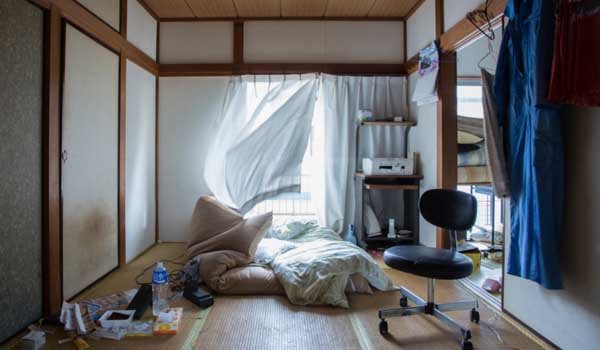The Japan Lawyers Network for Refugees protested the deportation in a letter submitted to the justice minister and other officials on March 2.
Eri Ishikawa, secretary-general of the nonprofit organization Japan Association for Refugees, blasted the Immigration Bureau’s action as “premature.”
“There are many steps that should have been taken on humanitarian grounds,” she said.
Under the international convention on the status of refugees, sending people back to their home country if they faced persecution there is prohibited.
With regard to Sri Lanka, the United Nations High Commissioner for Refugees warned its member countries in 2012 that people who were suspected of being linked to antigovernment activities could be tortured and even murdered.
The Japan Lawyers Network for Refugees also said the deportation of the man conflicted with what the then director-general of the Justice Ministry’s Immigration Bureau told a Lower House committee in 2014.
Kazuo Sakakibara told the panel that the bureau would contact lawyers to check whether their clients were preparing lawsuits before deporting them.
The man’s lawyers said they were never contacted by the Immigration Bureau.
They said the 40-year-old Tamil arrived in Japan in 1999 on a short-term visa.
He then abandoned his plans to return to Sri Lanka when security risks heightened following a failed attempt to assassinate President Chandrika Kumaratunga in December that year.
According to the man and his lawyers, he was recruited by ethnic Tamil rebels when he was 15.
At that time, the government’s military, which was led by the majority ethnic Sinhalese, was fighting a civil war with the Tamil rebels.
The man’s duty was to transport arms and aid the injured.
After he left the separatist group in 1995, authorities arrested him more than 10 times during which they often used violence against him to glean information about the rebels, the man and his lawyers claimed.
After learning that Japan granted refugee status to foreigners facing persecution, the man applied for political asylum in 2007, only to be rejected primarily on the grounds that he had overstayed his visa for a prolonged period of time.
While he lived in Japan, he always kept a potassium cyanide capsule on him. He said the rebel group gave it to him so that he could commit suicide if the need arose.
In 2012, he sued the Japanese government, demanding the nullification of the earlier decision by immigration authorities to deny him refugee status.
In court, he argued that he was forced to carry the potassium cyanide capsule as evidence of his claim that he was a member of the rebel group.
But the court dismissed his case, saying carrying the capsule alone did not corroborate his story.
After his second application for refugee status was spurned, he was taken to an Immigration Bureau facility on Feb. 22.
Fearing looming forcible repatriation, the man apparently attempted suicide using sleeping pills and was admitted to the hospital.
He met his lawyers on the morning of Feb. 26 after he was released from the hospital and handed them a paper asking them to file a lawsuit seeking to overturn the Immigration Bureau’s decision.
The man, however, was deported in the early hours of the following day.
Despite the Immigration Bureau chief’s remarks at the Lower House Committee on Judicial Affairs in 2014, the lawyers said that they were not contacted by Immigration Bureau officials before the Tamil man was sent back to Sri Lanka.
The Immigration Bureau defended its action to return him.
“Repatriation of those who were ordered to leave is followed through appropriately and lawfully, although we cannot discuss each individual case,” an Immigration Bureau official said. “(His case) was a repatriation carried out after a comprehensive review, and we don’t believe that it runs counter to the remarks (made by the Immigration Bureau’s director-general).”
(asahi.com)






